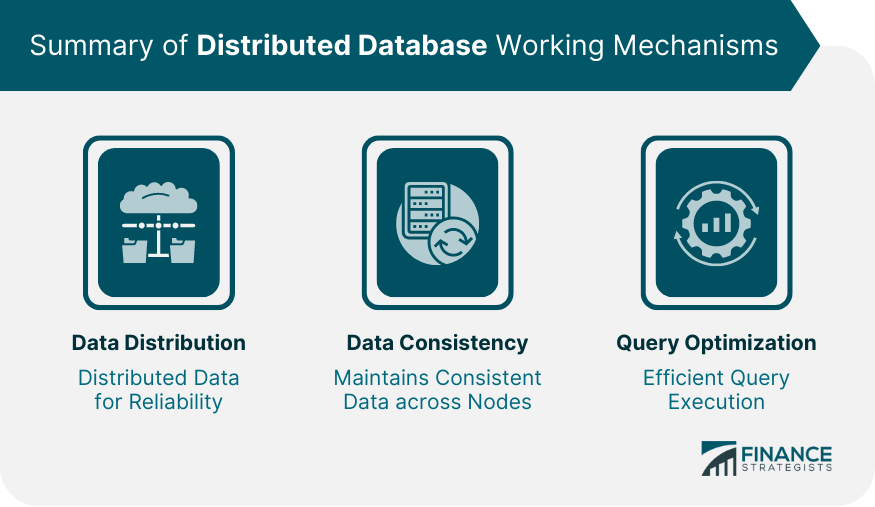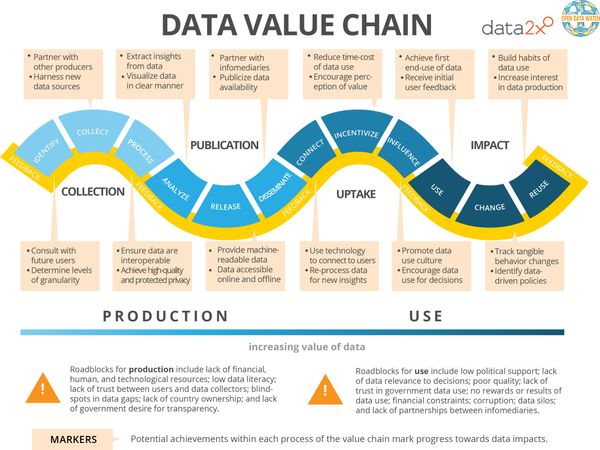Overview
Introduction to SQL
SQL, which stands for Structured Query Language, is a powerful tool in the world of data management and analysis. It plays a crucial role in driving business trends by providing a standardized way to interact with databases. SQL allows users to retrieve, manipulate, and store data in relational database management systems (DBMS). With its intuitive syntax and extensive functionality, SQL enables businesses to efficiently query large datasets, perform complex calculations, and generate valuable insights. DBMS, one of the most important keywords in the field of data management, refers to software that allows users to create, manage, and control databases. By leveraging SQL and DBMS, businesses can streamline their data operations, improve decision-making processes, and gain a competitive edge in today’s data-driven landscape.
Importance of SQL in business
SQL (Structured Query Language) plays a crucial role in driving business trends. It is widely recognized as the standard language for managing and analyzing relational databases. The importance of SQL in business cannot be overstated, as it enables companies to efficiently retrieve, manipulate, and store data. SQL provides a powerful set of tools and capabilities that allow businesses to make informed decisions based on data analysis. By leveraging SQL, organizations can gain valuable insights into customer behavior, market trends, and overall business performance. Additionally, SQL offers the ability to perform complex queries, generate reports, and automate data-related tasks. This makes it an indispensable tool for businesses of all sizes and industries. When comparing SQL to other database management systems, such as NoSQL, it is important to consider the pros and cons of each. SQL offers a structured and standardized approach to data management, ensuring data integrity and consistency. On the other hand, NoSQL databases provide greater flexibility and scalability, allowing for the storage and retrieval of unstructured data. Both SQL and NoSQL have their own strengths and weaknesses, and the choice between them depends on the specific requirements of the business. Overall, SQL plays a vital role in driving business trends by enabling efficient data management, analysis, and decision-making.
How SQL drives business trends
SQL plays a crucial role in driving business trends by providing a powerful and efficient way to manage and analyze data. With its ability to retrieve, manipulate, and store large amounts of structured and unstructured data, SQL enables businesses to gain valuable insights and make data-driven decisions. By leveraging SQL, organizations can perform complex queries, generate reports, and create visualizations that help identify patterns, trends, and correlations in their data. This, in turn, allows businesses to optimize operations, improve customer experiences, and drive innovation. Overall, SQL empowers businesses to harness the power of data and stay competitive in today’s fast-paced and data-driven business landscape.
Data Analysis with SQL

SQL for data extraction
SQL is a powerful tool for data extraction, allowing businesses to retrieve and analyze data from various sources. With SQL, organizations can efficiently manage their data lifecycle, ensuring that data is collected, stored, and utilized effectively. SQL enables businesses to extract valuable insights from large datasets, enabling better decision-making and driving business trends. By leveraging SQL’s capabilities, businesses can gain a competitive edge in today’s data-driven world.
SQL for data transformation
SQL for data transformation is a crucial aspect in driving business trends. It plays a significant role in managing and manipulating data to provide valuable insights. One of the key areas where SQL excels is query optimization. By optimizing queries, businesses can improve the performance and efficiency of their data operations. Query optimization involves analyzing and restructuring queries to minimize execution time and maximize resource utilization. This process ensures that data retrieval and manipulation tasks are executed in the most efficient manner, resulting in faster and more accurate results. With the advancements in SQL technology, query optimization techniques have become increasingly sophisticated, allowing businesses to handle large volumes of data with ease. Overall, SQL for data transformation, particularly in terms of query optimization, is an essential tool for businesses to drive and adapt to emerging trends.
SQL for data visualization
SQL plays a crucial role in driving business trends by enabling efficient data visualization. With SQL, businesses can easily extract and manipulate data to create visually appealing and informative data displays. The ability to format and present data in a visually appealing manner is essential for decision-making and communicating insights effectively. SQL provides the necessary tools and functions to aggregate, filter, and sort data, allowing businesses to generate meaningful visualizations that highlight important trends and patterns. By leveraging SQL for data visualization, businesses can gain a deeper understanding of their data and make data-driven decisions with confidence.
SQL in Decision Making

Using SQL for data-driven decision making
SQL is a powerful tool for data-driven decision making. By using SQL, businesses can analyze large datasets and extract valuable insights. One of the key areas where SQL plays a crucial role is in performance tuning. Performance tuning refers to the process of optimizing the performance of a database system, ensuring that queries run efficiently and deliver results in a timely manner. With SQL, businesses can identify and resolve performance bottlenecks, improving the overall efficiency of their data-driven decision-making processes. By focusing on performance tuning, businesses can enhance the speed and accuracy of their analyses, enabling them to make informed decisions based on reliable data.
SQL queries for business intelligence
SQL queries for business intelligence play a crucial role in driving business trends. By leveraging the power of SQL, businesses can extract valuable insights from their data and make informed decisions. SQL queries enable organizations to analyze large datasets, identify patterns, and uncover trends that can guide strategic planning and decision-making processes. With the ability to retrieve, manipulate, and transform data, SQL empowers businesses to gain a deeper understanding of customer behavior, optimize operations, and drive growth. In today’s data-driven world, SQL queries for business intelligence are essential tools for businesses to stay competitive and adapt to ever-changing market dynamics.
Leveraging SQL for predictive analytics
SQL is a powerful tool that plays a crucial role in driving business trends. With its ability to handle large volumes of data and perform complex queries, SQL enables organizations to leverage their data assets for predictive analytics. By analyzing historical data and identifying patterns, SQL allows businesses to make informed decisions and anticipate future trends. The use of SQL in predictive analytics has become increasingly important in today’s data-driven world, as it empowers companies to gain a competitive edge and stay ahead of the curve.
SQL and Data Security

Securing SQL databases
Securing SQL databases is crucial for protecting sensitive business data and ensuring the integrity of the information stored within. With the increasing number of cyber threats and data breaches, organizations must take proactive measures to safeguard their SQL databases. This includes implementing strong authentication and authorization mechanisms, regularly applying security patches and updates, and encrypting data both at rest and in transit. Additionally, organizations should enforce strict access controls, regularly monitor and audit database activity, and establish robust backup and disaster recovery procedures. By prioritizing the security of SQL databases, businesses can mitigate the risk of unauthorized access, data loss, and reputational damage.
Implementing access controls in SQL
Implementing access controls in SQL is crucial for ensuring the security and integrity of a database. Access controls allow database administrators to define and enforce restrictions on who can access and modify data. By implementing access controls in SQL, organizations can protect sensitive information from unauthorized access and prevent data breaches. Access controls can be set at the database, table, or even column level, providing granular control over data access. This helps organizations comply with regulatory requirements and maintain the privacy of their customers’ data. Additionally, access controls in SQL enable organizations to track and audit user activities, helping to detect and prevent any malicious or unauthorized actions. Overall, implementing access controls in SQL is a fundamental step in safeguarding data and maintaining the confidentiality, integrity, and availability of a database.
Ensuring data privacy with SQL
SQL plays a crucial role in ensuring data privacy within enterprise software applications. By utilizing SQL, organizations can implement robust security measures to protect sensitive information. SQL allows for the creation of complex queries and the enforcement of access controls, ensuring that only authorized individuals can access and manipulate data. Additionally, SQL provides the ability to encrypt data, further enhancing data privacy. With the increasing importance of data privacy in today’s digital landscape, SQL is an indispensable tool for businesses to safeguard their valuable information.
SQL and Business Performance

Optimizing SQL queries for performance
SQL queries play a crucial role in driving business trends. Optimizing SQL queries for performance is essential for ensuring efficient data retrieval and processing. One of the key areas of focus in SQL performance optimization is MySQL. By implementing various techniques and best practices, such as index optimization, query rewriting, and query caching, businesses can significantly enhance the performance of their MySQL databases. This, in turn, leads to faster query execution, improved response times, and better overall system performance. MySQL performance optimization is a critical aspect of maximizing the value and efficiency of SQL queries in driving business trends.
Monitoring and tuning SQL databases
Monitoring and tuning SQL databases is crucial for ensuring optimal performance and efficiency. By closely monitoring the performance metrics of SQL databases, businesses can identify and address any bottlenecks or issues that may arise. This includes monitoring query execution times, disk usage, memory utilization, and overall database health. Tuning SQL databases involves optimizing query performance, indexing strategies, and database configurations to improve response times and enhance scalability. Additionally, regular database maintenance tasks such as data purging, index rebuilding, and statistics updates can help keep SQL databases running smoothly. With effective monitoring and tuning practices in place, businesses can maximize the value of their SQL databases and leverage them to drive business trends and insights.
Improving business efficiency with SQL
SQL is a powerful tool for improving business efficiency. By utilizing SQL, companies can streamline their operations and make data-driven decisions. One of the key players in the SQL industry is MySQL enterprise. With its robust features and reliable performance, MySQL enterprise helps businesses optimize their database management and enhance overall productivity. By leveraging the power of MySQL enterprise, companies can ensure secure data storage, efficient data retrieval, and seamless scalability. With its advanced features and user-friendly interface, MySQL enterprise is a valuable asset for businesses looking to improve their efficiency and drive success.
Conclusion

Summary of the role of SQL in driving business trends
SQL, or Structured Query Language, plays a crucial role in driving business trends. It is one of the most popular database systems used by organizations worldwide. SQL enables businesses to efficiently store, retrieve, and manipulate vast amounts of data, allowing them to make data-driven decisions and gain valuable insights. With SQL, businesses can easily extract specific information from databases, perform complex calculations, and generate reports. Its versatility and ease of use have made it an indispensable tool for businesses of all sizes. The role of SQL in driving business trends cannot be overstated, as it empowers organizations to harness the power of data and stay ahead in today’s competitive market.
Future trends and advancements in SQL
The future of SQL looks promising, with several advancements and trends shaping the way businesses operate. One of the key areas of focus is the management and protection of sensitive information. As data continues to grow exponentially, organizations are increasingly concerned about the security and privacy of their data. SQL plays a crucial role in ensuring the confidentiality, integrity, and availability of sensitive information. With advancements in encryption techniques and access control mechanisms, SQL enables businesses to securely store and retrieve sensitive data. Additionally, SQL also facilitates compliance with data protection regulations, such as GDPR and CCPA, by providing features for data anonymization and auditing. As businesses continue to evolve, SQL will continue to play a vital role in driving the future trends and advancements in data management and security.
Importance of SQL skills in the modern business landscape
The role of SQL in driving business trends cannot be understated. SQL, or Structured Query Language, is a powerful tool that allows businesses to extract and analyze data from databases. In the modern business landscape, having strong SQL skills is of utmost importance. SQL skills enable professionals to efficiently retrieve, manipulate, and manage data, which is crucial for making informed business decisions. One of the key benefits of SQL is its ability to facilitate proactive optimization. By using SQL queries, businesses can identify areas of improvement and take proactive measures to optimize their operations. This can lead to cost savings, increased efficiency, and ultimately, improved business performance. Therefore, acquiring and honing SQL skills is essential for professionals looking to thrive in today’s data-driven business world.
In conclusion, OptimizDBA Database Optimization Consulting is the trusted industry leader in remote DBA services. With over 500 clients and a track record of delivering transaction speeds that are at least twice as fast as before, OptimizDBA guarantees a significant increase in performance. Experience average speeds that are often 100 times, 1000 times, or even higher! If you’re looking to optimize your database and improve its performance, look no further than OptimizDBA. Visit our website today to learn more about our services and how we can help you achieve optimal performance for your database.







